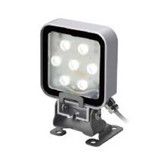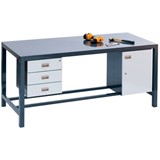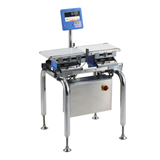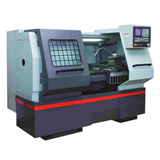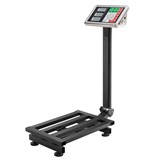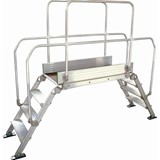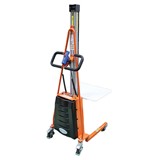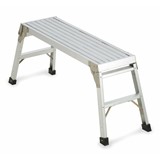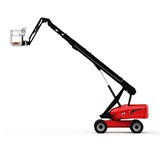"To have a genuinely national system there will at some point need to be a rationalisation of the ten-plus State and Federal agencies and tribunals. Industry, however, would have serious concerns with a new agency that diminished the functions and independence of key institutions within the WorkChoices workplace relations system such as the Australian Industrial Relations Commission (AIRC), the Australian Fair Pay Commission (AFPC), the Office of the Employment Advocate (OEA), and the Office of Workplace Services (OWS).
"It is far from clear how Fair Work Australia would operate but the radical concept of bringing together into one authority the functions of adviser, investigator, prosecutor, mediator and judge would create serious conflicts of interest.
"Under the current system we have a clear separation of powers and functions. Under Labor's plan the super regulator would be responsible for advising on the law, investigating alleged breaches, pursuing prosecutions, determining whether breaches have occurred and imposing penalties. It is much like combining the functions of the police, the Director of Public Prosecutions (DPP) and the courts. In the workplace relations context, it is the equivalent of the Industrial Relations Commissioner and the advocate for one of the parties being the same person.
"At the same time that the ALP is proposing to introduce much more union friendly workplace relations laws and roll back WorkChoices, the AIRC would potentially lose important powers to deal with unreasonable union behaviour.
"The AIRC's role has changed under WorkChoices but it maintains significant roles and powers which should not be diminished such as the power to:
- Issue orders to prevent and stop unlawful industrial action;
- Suspend or terminate bargaining periods (and hence the right to take industrial action) where industrial action is threatening to damage the economy, where pattern bargaining is occurring etc;
- Oversee the system of secret ballots to authorise industrial action;
- Rationalise and maintain federal awards;
- Subject to various exemptions, determine whether a dismissal is harsh, unjust or unreasonable;
- Oversee the system of registration of unions and employer associations;
- Revoke the entry permits of union officials who engage in inappropriate behaviour.
"While the current level of industrial action is very low it was only a few years ago that construction and manufacturing unions were wreaking havoc on industry with pattern bargaining campaigns and industry-wide industrial action. The AIRC stepped in and used its powers to the fullest extent to protect the national interest and to stop unnecessary losses of income by employers and employees. If industrial action breaks out under a new workplace relations system, a strong tribunal is needed. The AIRC has proved that it can deliver, but will Fair Work Australia have the teeth and the will?" Ridout said.
- Suppliers
- New to IndustrySearch? Book a Demo
- Advertise with us
- Login
- Email Marketing
- Buyers
- Get Quotes
- Articles & Ideas
- Login
- Subscribe to newsletter
- My Details
- Get Quotes
- Automation & Control
- Automotive Workshop Equipment
- Commercial Cleaning Equipment & Supplies
- Construction Equipment & Heavy Machinery
- Conveyor Systems & Components
- Electrical & Power Generation Equipment
- Electronic Components
- Farming & Agriculture
- Food & Beverage Processing
- Forklifts & Forklift Attachments
- Hydraulic & Pneumatic Equipment
- Industrial Materials, Tools & Components
- Industrial Pumps
- IT Hardware & Industrial Computing
- IT Software & Applications
- Laboratory Equipment & Instruments
- Manufacturing & Industrial Equipment
- Material Handling & Lifting Equipment
- Metalworking & Machining
- Mining Equipment & Machinery
- Packaging & Labelling Machinery
- Pallet Handling Equipment
- Personal Protective Equipment
- Security & Surveillance
- Test & Measurement
- Transport & Logistic Equipment
- Warehouse Storage, Shelving & Racking
- Waste Treatment & Environmental Management
- Welding Machines & Accessories
- Woodworking & Joinery Machines
- Workplace Equipment
- Workplace Safety Equipment
- Get Quotes
- Automation & Control
- Automotive Workshop Equipment
- Commercial Cleaning Equipment & Supplies
- Construction Equipment & Heavy Machinery
- Conveyor Systems & Components
- Electrical & Power Generation Equipment
- Electronic Components
- Farming & Agriculture
- Food & Beverage Processing
- Forklifts & Forklift Attachments
- Hydraulic & Pneumatic Equipment
- Industrial Materials, Tools & Components
- Industrial Pumps
- IT Hardware & Industrial Computing
- IT Software & Applications
- Laboratory Equipment & Instruments
- Manufacturing & Industrial Equipment
- Material Handling & Lifting Equipment
- Metalworking & Machining
- Mining Equipment & Machinery
- Packaging & Labelling Machinery
- Pallet Handling Equipment
- Personal Protective Equipment
- Security & Surveillance
- Test & Measurement
- Transport & Logistic Equipment
- Warehouse Storage, Shelving & Racking
- Waste Treatment & Environmental Management
- Welding Machines & Accessories
- Woodworking & Joinery Machines
- Workplace Equipment
- Workplace Safety Equipment
Trusted by 1,000,000+ Australian industrial buyers
Buyers
- Discover products & solutions
- Login
- Subscribe To Newsletter
- Browse All Products
- Read Articles
Suppliers
Advertise
- Promote your products & solutions
- New to IndustrySearch? Book a Demo
- Login / Forgot Password
- Advertise Your Products
- Success Stories
- Email Marketing
- Suppliers
- Advertise with us
- Login
- Email Marketing
- Buyers
- Get Quotes
- Articles & Ideas
- Login
- Subscribe to newsletter
- My Details
Get Quotes
- Automation & Control
- Automotive Workshop Equipment
- Commercial Cleaning Equipment & Supplies
- Construction Equipment & Heavy Machinery
- Conveyor Systems & Components
- Electrical & Power Generation Equipment
- Electronic Components
- Farming & Agriculture
- Food & Beverage Processing
- Forklifts & Forklift Attachments
- Hydraulic & Pneumatic Equipment
- Industrial Materials, Tools & Components
- Industrial Pumps
- IT Hardware & Industrial Computing
- IT Software & Applications
- Laboratory Equipment & Instruments
- Manufacturing & Industrial Equipment
- Material Handling & Lifting Equipment
- Metalworking & Machining
- Mining Equipment & Machinery
- Packaging & Labelling Machinery
- Pallet Handling Equipment
- Personal Protective Equipment
- Security & Surveillance
- Test & Measurement
- Transport & Logistic Equipment
- Warehouse Storage, Shelving & Racking
- Waste Treatment & Environmental Management
- Welding Machines & Accessories
- Woodworking & Joinery Machines
- Workplace Equipment
- Workplace Safety Equipment
Get Quotes
- Automation & Control
- Automotive Workshop Equipment
- Commercial Cleaning Equipment & Supplies
- Construction Equipment & Heavy Machinery
- Conveyor Systems & Components
- Electrical & Power Generation Equipment
- Electronic Components
- Farming & Agriculture
- Food & Beverage Processing
- Forklifts & Forklift Attachments
- Hydraulic & Pneumatic Equipment
- Industrial Materials, Tools & Components
- Industrial Pumps
- IT Hardware & Industrial Computing
- IT Software & Applications
- Laboratory Equipment & Instruments
- Manufacturing & Industrial Equipment
- Material Handling & Lifting Equipment
- Metalworking & Machining
- Mining Equipment & Machinery
- Packaging & Labelling Machinery
- Pallet Handling Equipment
- Personal Protective Equipment
- Security & Surveillance
- Test & Measurement
- Transport & Logistic Equipment
- Warehouse Storage, Shelving & Racking
- Waste Treatment & Environmental Management
- Welding Machines & Accessories
- Woodworking & Joinery Machines
- Workplace Equipment
- Workplace Safety Equipment
Trusted by 1,000,000+ Australian industrial buyers

